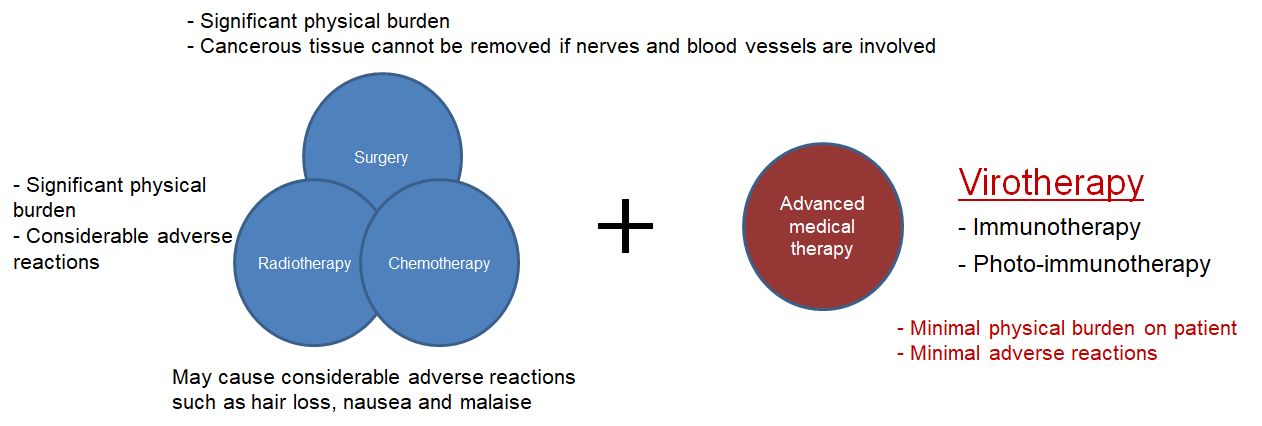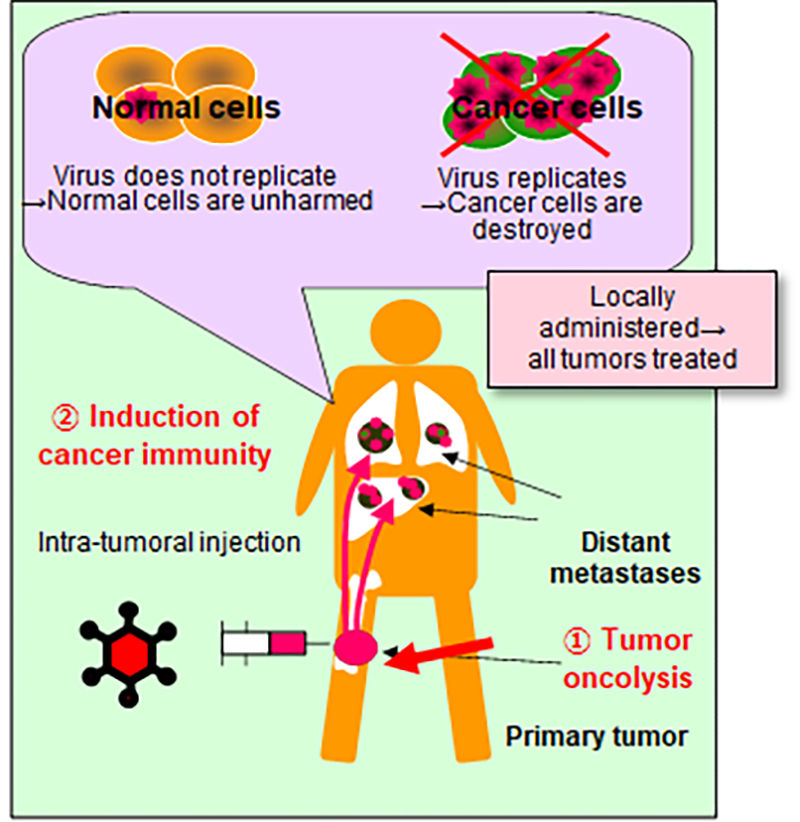Technology Briefs
Oncolytic viruses (OVs) for the treatment of cancers
Cancer Therapies
In addition to the 3 major conventional cancer treatments (surgery, radiotherapy and chemotherapy), virotherapy is attracting interest as a new form of advanced medical approach to cancer amelioration.

What are oncolytic viruses (OVs)?
Oncolytic viruses or“OVs”:
- infect and destroy target cancer cells by a process known as “oncolysis” which breaks the cancer cell apart;
- have been genetically modified to destroy cancer cells selectively;
- do not damage normal tissues because of their inability to replicate in normal cells upon infection; and are expected to serve as a novel anti-cancer therapeutic with high safety.
- can infect normal cells but cannot replicate inside them so they do not harm healthy tissue, and; are highly safe for the above reasons.

Our Core Strengths: OVs as cancer therapeutics
- Our therapeutic oncolytic viruses (OVs) use adenoviruses (AdVs) as their backbone. AdVs are viruses that cause cold-like symptoms and are commonly present in our surroundings. They are totally different from Vaccinia viruses related to smallpox or Herpes simplex viruses (HSVs), which can cause serious infectious diseases.
- Our therapeutic OVs are genetically modified using the promoter for the expression of a protein called “survivin,” which is selectively expressed in cancer cells. So, their propagation parallels the cellular levels of survivin such that they can only propagate in cancer cells but not normal cells.
- Survivin is expressed in virtually all cancers, granting the effectiveness of our OVs against almost all cancer types.
- Survivin expression increases in more malignant tumors, indicating that our OVs are effective against highly malignant cancers.
- Survivin is virtually absent in normal cells, indicating the inability of our OVs to propagate in these cells and its high-level clinical safety.
- Upon OV-induced lysis of cancer cells, they liberate their contents, leading to antigen presentations and elicitation of autoimmunity, by which the patient’s immune function may also begin attacking any remaining cancer.
- Our therapeutic OVs are injected directly into the tumor using ultrasound guidance, so the surgical procedure is minimally invasive to the patient.
- OVs do not cause vomiting, hair loss, anemia, malaise, or other significant adverse reactions associated with chemotherapy and radiotherapy, so they are expected to have a minimal physical impact on patients and to assure their quality of life (QOL).
Cancer Immunotherapy aspects of our approach (graphic)
When locally administered, our OV, Surv.m-CRA-1, will break apart and destroy target tumor cells and, in the process, can effectively induce immunity; we anticipate it acts as a cancer immunotherapy agent as well. It has also shown promise in the treatment of metastatic tumors.

